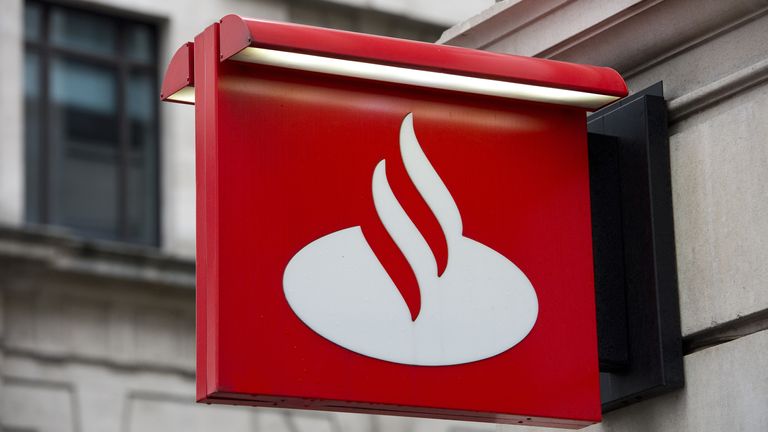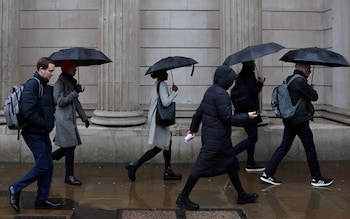A giddy air of anticipation is building as a huddle of onlookers gather round a pensioner crouching on the shop floor and using a Stanley knife to open an Amazon package. Laurent Delevingne, 69, looks baffled as he removes layer after layer of crumpled paper padding, and then brightens up when he sees what is clearly the blade of a kitchen gadget.
He pulls out a blender and shrugs his shoulders with an expression best described as “mild satisfaction”. The spectators – for this is very much a spectator sport – nod and mumble that it’s not bad. It could have been worse. A lot worse. “Last time I ended up with 15 universal television remotes,” says Lorenzo Houdard, 25.
“But I plan to sell them for €5 each so I won’t lose any money. I’ll bring these two boxes home for my wife and we’ll open them together. I’d like to think this will be my last visit here but it’s like Kinder Surprise for adults – impossible to resist!”
The packages he is holding aloft are sealed. Like Laurent before him, he has no idea what might be inside. It could be an iPhone or a set of cheap screwdrivers, a fancy Omega watch or a multipack of sports socks. So far the highest ticket item has been a €1,200 Moncler designer jacket. It’s essentially a gamble – and that’s the appeal.
For this jackpot jaunt, we’ve headed to a tiny shop called Pile ou Face – French for Heads or Tails – in Brussels. Pile ou Face is selling unopened, unwanted and unidentifiable goods that would otherwise be destroyed. These are Amazon packages that never made it to their buyers for whatever reason – some lost in transit, some with faulty addresses – or were returned by the purchaser and stockpiled in a warehouse.
Because it was deemed too costly to return them to the supplier, they were routinely destroyed. Not any more. Now they are being bought in bulk and sold on, as seen – which is to say, unseen.

Arnaud Userstam, who founded the shop, which is as bleakly spartan as a mail delivery office, says connected watches and smartphones are the most sought-after items. But whatever you end up with, it’s important to be philosophical.
“One lady got 100 toothbrushes for dogs,” he says. “Until last year, this kind of packet was burned because it was too expensive for courier services to store them.
“But now there’s a European law that bans their burning, and so we buy up the parcels and resell them. People have really taken to this idea so we’ve had to restrict purchases to two per person. We positively encourage them to shake the packets and have a bit of fun making their selection.”
The packages are sold by weight, as is customary in second-hand clothes shops. Currently it’s €16 per kilo and there’s a set of electronic scales so shoppers can weigh up the possibility of reaping the ultimate reward.
Could this model work in Britain? A recent report by Statista revealed that in 2023, around three in ten shoppers in the UK spent an average of £50-100 on Amazon.co.uk every month; over a quarter – 26 per cent – spent more than £200. I shudder to think which category I fall into.
Such is the online behemoth’s reach that former Conservative leader Ian Duncan Smith this week called on Amazon to help consumers concerned about human rights and slave labour issues boycott Chinese goods by making it clear where products were manufactured.
But on today’s showing, most of the goods appear to be made in China – and nobody seems in the least bothered.
“It’s a bit like gambling,” says Jean-Michel Kazmierczak, 51. “Except I usually win when I bet on sport. This is initially exciting and then a bit of a letdown usually. Still, I’ve got these packages and I’m going to bring them back home and open them with my wife.”
He’s paid an impressive €84.80, which is quite the punt. Chocolates and flowers would have been cheaper, I murmur. But he grins the dazzling grin of a natural-born optimist: “Maybe, but there could be something amazing inside!”
And then it’s my turn. By the end of half an hour, I’ve grown remarkably savvy and increasingly demented. I am squeezing packages, I am shaking them, and I’m not going to lie, at one point I slip my hand inside a large, badly sealed packet.

My fingers emerge with what appears to be a load of medical wadding so I discreetly return the package to the pile. Some punters do end up with those much-vaunted electronics but by the end of my afternoon I’m wondering if they were an insanely lucky fluke because, Spoiler Alert, I did not open a Balenciaga coat or land a next generation Galaxy Samsung.
My first package contains a balloon-powered dinosaur toy. It is magnificently tacky and horrid. Later, I discover the RRP is £9.99.
Next up a party paper plate and cup set emblazoned with “Hello Baby”. I gift it to a crying toddler in the shop but he doesn’t stop wailing. I think he really wants the balloon-powered dinosaur. No way am I handing that prize over.
I’ve been given special permission to have another go, so my first two “treasures” are followed by an absolutely hideous brown plastic girls’ wallet and then an interesting box covered in battery warning stickers. I brighten up considerably.
Surely here’s the tech I’ve come here for? Inside is a lilac iPhone mini power bank. Not bad but very basic. Again worth £9.99, so not a bona fide bargain plus I don’t actually need one.
Once my extended spree is over, I feel bizarrely – disproportionately – deflated. I’d keep going if I could, which I find slightly scary.
Could there be another blender in there? What about those heavy boxes that are priced up at €150 each? According to Nathan, who works behind the till, they cost just €11 a kilo and offer the best value because the contents can be split up and sold on.
All identifying marks on the packages must be covered up for legal reasons long before they reach the shop floor. But someone has forgotten to cover up the label on a stack of duck egg incubators from – where else? – China. But I’m not sure how I would realistically find many takers for them in central London.
As I leave, Suzanna Müller, 37, a photographer from Brussels, is casting her professional eye over the parcels. “My husband and I order a lot of stuff online and I have to be honest not many people would want 15 kilos of dog food, so I’m quite sceptical about what I might find here.
Brave new world?
“I’m hoping for maybe some nice face cream or cosmetics. Either way. I’ll bring these parcels home to my husband.”
Is this the brave new world of sustainable bargain hunting or a flash-in-the pan gimmick to make money from gullible punters? The jury’s out on that one: the recurring theme here really is the element of shared surprise. Not so much retail therapy, as retail jeopardy. Who could have guessed that’s what customers crave?
It might sound crazy in theory but in practice there’s clearly a market for adult Kinder Surprises. I spent €33 for a load of not-quite rubbish but certainly rubbish-adjacent trinkets and tat. But – I had a blast.
When I bring my booty home, the balloon-powered dinosaur proves to be an hilarious hit with my 15-year-old, who instantly regresses and takes triumphant possession of it. I call that a win. She also happily takes the lilac power bank, although it doesn’t come with a cable, so I have to give her one of mine, which I see as a net loss. As for the wallet, it’s in the charity shop pile so perhaps some good will come of it.
So, if you are passing through Brussels I’d recommend you swing by, but don’t open your parcels on the spot. Bring them home. Put them on your mantelpiece as a conversation piece and ask friends and family to guess the contents.
Take it from me, that giddy air of anticipation renders anything – even a job lot of doggy toothbrushes – absolutely priceless.
Disclaimer: The copyright of this article belongs to the original author. Reposting this article is solely for the purpose of information dissemination and does not constitute any investment advice. If there is any infringement, please contact us immediately. We will make corrections or deletions as necessary. Thank you.



